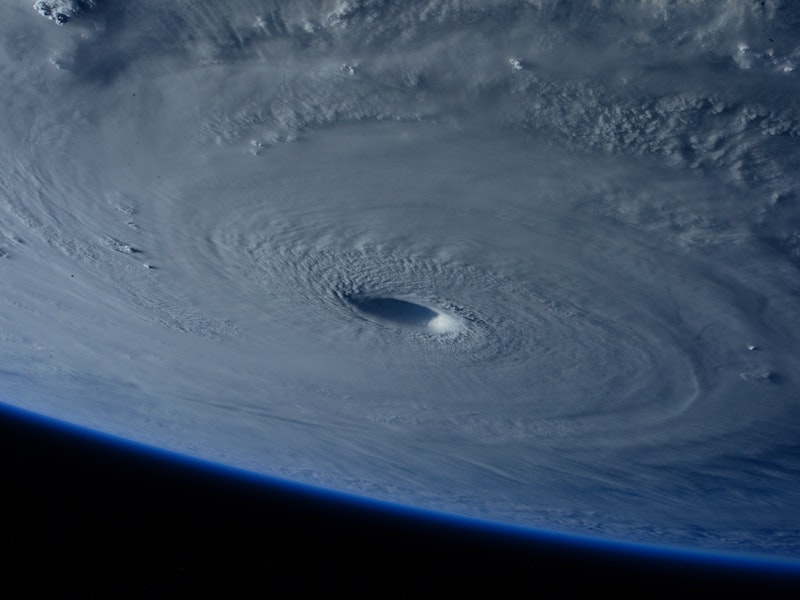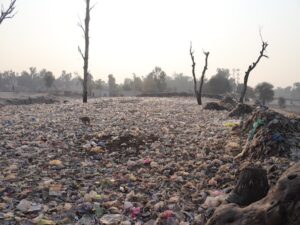An often neglected human superpower means our destiny is still in our hands
To be a superhero, you need superpowers like laser beams for eyes, the ability to walk through walls, the ability to fly. When compared to these figments of our imagination, it’s easy to take for granted a genuine superpower we all possess, foresight. Foresight allows us to understand the consequences of our actions and adapt our behaviour accordingly. It’s this superpower that means we know that without drastic reductions in carbon emissions, we’re hurtling into a deeply hostile world that will be ravaged by weather extremes.
An example is that weather extremes will increase the risk of droughts, both in length and scale. As the climate warms, the risk of global droughts that lead to synchronous global crop failures increases. Crop failures will bring food shortages that will debilitate food markets. As hard as it seems to believe now, food shortages could force governments to implement rationing. Hardly a measure that will be welcomed with open arms, but one that will become necessary as shortages lead to price spikes which translate into uncertainty and social unrest.
So back to our collective superpower, foresight. We know we’re hurtling towards a world where the risks of social breakdown increase; we know why it’s happening; we know other civilisations have faced similar challenges and failed to adapt, and we know untold suffering is likely to follow in the wake of breakdown should we fail to avert it. The thing is, we’ve reached a point where the changes we’ve induced to the environment are so monumental that a transformation of the natural world has become inevitable. What’s not is how extreme those changes will be. Our destiny is still in our hands, so what will it be? Will we be proactive and redesign societies to reflect this changing reality? Or, will we continue on the path of business as usual, making the challenges we face worse, and then reactively respond to a far more aggressive transformation that will create social disasters?
Sustainability efforts are all being proactive and implementing measures that will allow us to make necessary adaptations. That’s the idea, anyway. But at the heart of efforts to implement change is a conflict of interest that centres around the fact that Capitalism is a system predicated on never-ending economic growth. That economic growth remains the foundational goal of all economic activity has led to the economy exploding in size.
The economy has become so large that we are now in a state of ecological overshoot. Overshoot is where our demands on the natural world exceed its regenerative capacity. And it’s not as if we’ve overshot by a little bit; we’d need 1.7 Earths to make our consumption levels sustainable. It doesn’t seem feasible that economic growth remains a foundation of the economy, and yet there is an argument that economic growth can be sustained if growth is decoupled from environmental impacts.
As of now, there is no sign of this great decoupling — increasing growth is still strongly correlated to increasing environmental impacts. And things are set to get worse because the global middle class is estimated to reach 5.3 billion people by 2030. This fact should be celebrated as it means more people are climbing out of poverty and have more disposable income. But in a consumer culture, more people with more income can buy more products. While this may translate into more growth, it also requires more energy inputs.
That’s one of the reasons why the Energy Information Administration (EIA) predicts global energy demands will increase by 50% over the next 30 years. And while renewables are set to make up 28% of energy consumption (from 18% today), 68% will still come from fossil fuels.
More growth translates into more emissions, more waste, more habitat destruction, and ultimately increasing overshoot. In other words, if economic growth can’t be sustained, it is an unsustainable economic goal. But no government dare question growth because the argument underlying the pursuit of increasing Gross Domestic Product (GDP) is that it stimulates economies and creates wealth. The idea is that more wealth filters through society, creating a rising tide that raises all boats.
This is a convenient lie used to justify the continuation of the never-ending expansion of the economy. In reality, the richest 1% of people own 46% of human wealth. The issue, then, isn’t that we lack wealth; the problem is that a disproportionate amount of wealth is being filtered into the hands of a tiny minority. Meanwhile, the vast majority remain trapped in a poverty cycle. This state of affairs isn’t some convenient coincidence. The rules of markets are set up to make sure more growth leads to more wealth filtering to the richest. It’s a safe bet, then, to assume more growth will continue to lead to the same outcomes. The rich get richer, while the poor suffer in silence.
While foresight means we know our current course is leading to catastrophe, the underlying ideology we all conform to goes unquestioned because, funnily enough, those that benefit from the system as it is don’t want radical change. Change would be a risk to the status quo and their power and influence. So, even though the value of more growth is to make a tiny minority even richer, it seems inevitable that economic growth will continue going unquestioned as the foundational economic goal. Overshoot will continue to increase. We’ll all continue hurtling towards disaster.
So what’s it going to be — transformation by design or disaster? Well, given we refuse to acknowledge the need to transform away from business as usual, it’s becoming ever more likely that transformation will be forced upon us through disaster. While that will undoubtedly lead to anxiety, fear, and doomism, what should breed hope is that humanity is unbelievably resilient. Another of our neglected superpowers is our ability to problem-solve in the face of unbelievable adversity. Sure, this is the mother of all challenges; sure, if we fail to adapt, it could lead to the end of civilisation, sure powerful vested interests will do everything in their power to maintain the status quo, but what breeds hope is that the ideas, technological know-how, and an army of highly motivated environmentalists already exist. They are waiting to get to work to create a society and economy that is fit for purpose. All that’s needed is the conditions to support radical change. Seeing as our civilisation is designed to increase overshoot, it’s likely that eventuality isn’t far off.



